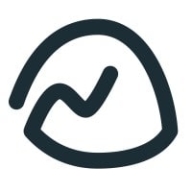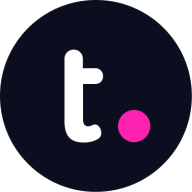

Basecamp and Teamwork are project management solutions offering various advantages. Teamwork seems to have the upper hand due to its extensive features catering to complex projects, despite its higher price.
Features: Basecamp provides an easy-to-use interface with to-do lists, message boards, and simple scheduling, promoting collaboration. Teamwork offers task dependencies, time tracking, and budget management, ideal for complex project requirements.
Ease of Deployment and Customer Service: Basecamp's cloud-based deployment ensures fast implementation and minimal maintenance, complemented by responsive customer service. Teamwork's deployment involves more setup but is backed by extensive documentation and skilled support staff.
Pricing and ROI: Basecamp's flat-rate pricing appeals to small-to-medium businesses with predictable costs, offering a good return on investment due to low setup costs. Teamwork's tiered pricing reflects its functionality, providing a strong return on investment for businesses using its full capabilities.


Basecamp is a web-based project-management tool developed by Basecamp and launched in 2004, with a new version being launched in 2012. Basecamp offers to-do lists, wiki-style web-based text documents, milestone management, file sharing, time tracking, and a messaging system. Basecamp Classic also offers integration with Basecamp's own Campfire product, and features APIs that are used by a host of web and mobile apps. Basecamp Classic's interface is available in different languages (e.g. Spanish, French, Italian, German, Finnish and Japanese). The newer version of Basecamp currently only supports English as the interface language.
Teamwork is a comprehensive project management and collaboration software that enables teams to work together efficiently and effectively. With its wide range of features and intuitive interface, Teamwork helps streamline workflows, improve communication, and increase productivity.
One of the key features of Teamwork is its task management capabilities. Users can create tasks, assign them to team members, set due dates, and track progress. This ensures that everyone is on the same page and deadlines are met. Additionally, users can create task dependencies, allowing for better coordination and sequencing of work.
Teamwork also offers powerful collaboration tools. Users can create and share documents, files, and notes, making it easy for team members to access and collaborate on important information. The software also includes a messaging feature, enabling real-time communication and reducing the need for lengthy email threads.
Another notable feature of Teamwork is its time-tracking functionality. Users can log their time spent on tasks, providing valuable insights into project progress and resource allocation. This feature is particularly useful for tracking billable hours and ensuring accurate invoicing.
Teamwork also offers robust project planning and scheduling capabilities. Users can create project timelines, set milestones, and allocate resources. The software provides a visual representation of project progress, allowing teams to easily identify bottlenecks and adjust timelines accordingly.
Furthermore, Teamwork integrates with a wide range of third-party applications, such as Google Drive, Dropbox, and Slack, enhancing collaboration and streamlining workflows. The software also offers mobile apps, enabling users to stay connected and productive on the go.
We monitor all Project Management Software reviews to prevent fraudulent reviews and keep review quality high. We do not post reviews by company employees or direct competitors. We validate each review for authenticity via cross-reference with LinkedIn, and personal follow-up with the reviewer when necessary.